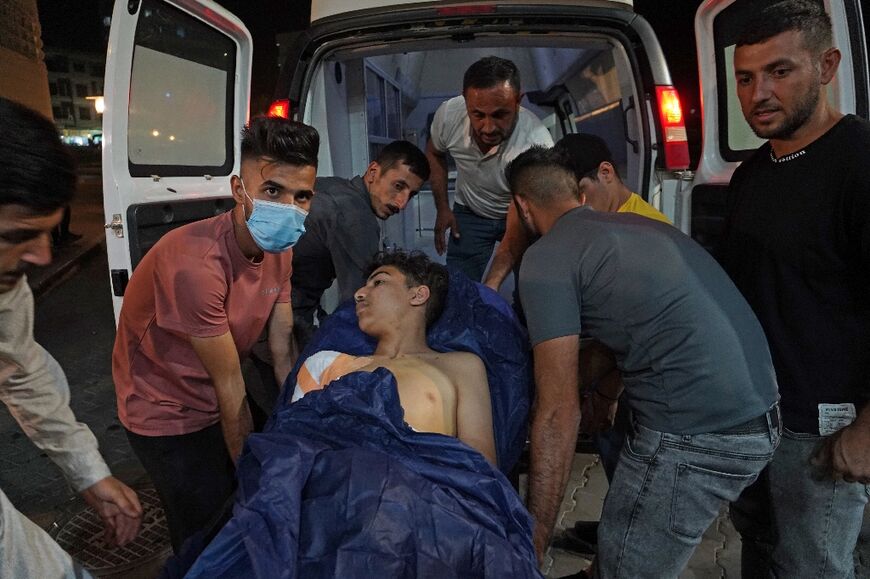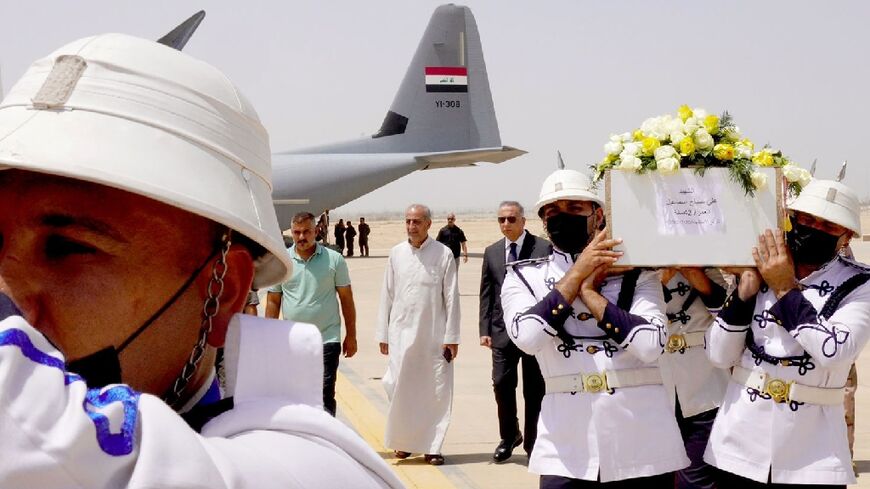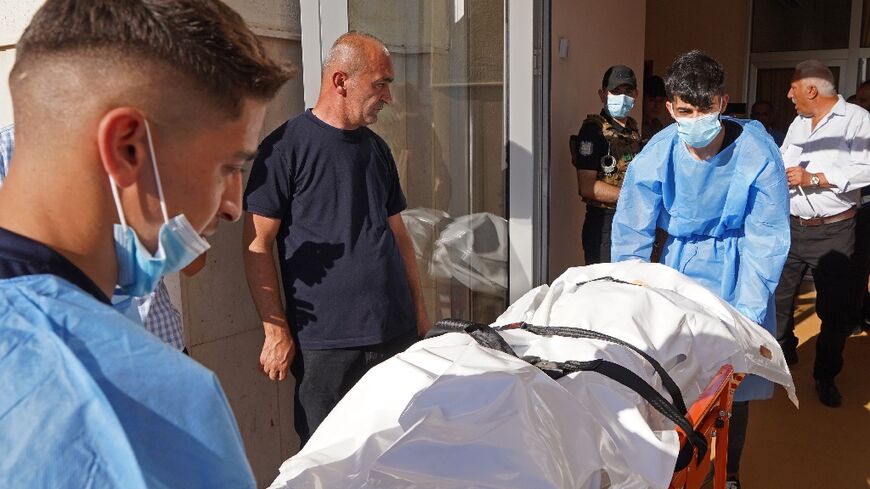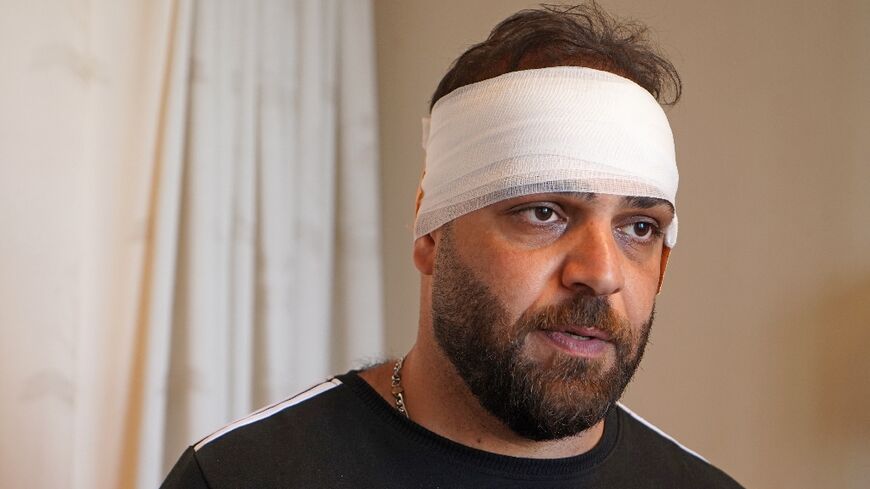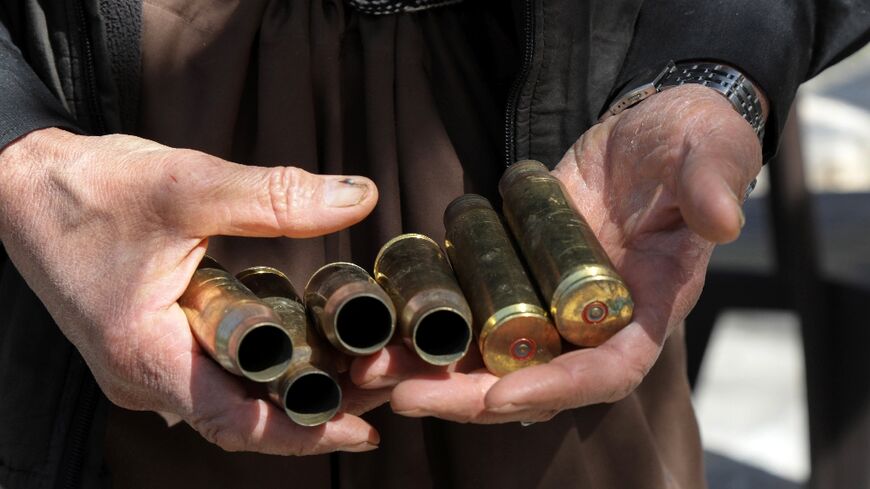Angry Iraq mourns dead from shelling blamed on Turkey
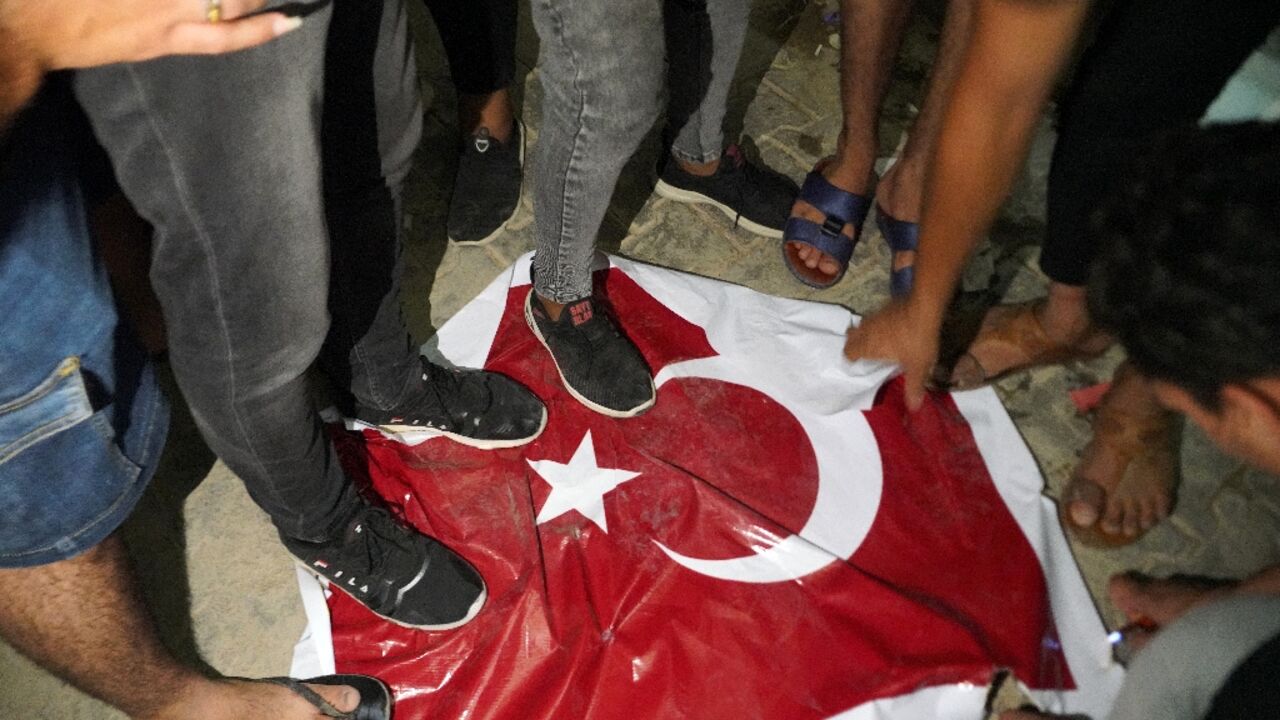
Iraqi Prime Minister Mustafa al-Kadhemi declared a day of national mourning Thursday after nine holidaymakers were killed in the bombardment of a Kurdish hill village he blamed on neighbouring Turkey.
The bodies were to be flown to Baghdad from the Kurdish regional capital Arbil to be handed over to the families for burial in their hometowns in southern and central Iraq, a Kurdish official said.
Thursday's shelling in the Zakho district village of Parakh also wounded 23 people, the majority of them domestic tourists seeking respite from the heat of the plains in the mountains of the Kurdish north.
The deaths in a village pleasure garden prompted several dozen angry demonstrators to protest outside the Turkish visa office in Baghdad early Thursday, despite a heavy police presence.
Loudspeakers blared out patriotic songs as protesters chanted slogans demanding the expulsion of the Turkish ambassador, an AFP journalist reported.
"We want to burn down the embassy. The ambassador must be expelled," said demonstrator Ali Yassin, 53. "Our government is doing nothing."
There were similar protests on Wednesday night in the Shiite shrine cities of Najaf and Karbala and in the southern city of Nasiriyah.
In an unusually strong rebuke, the prime minister warned Turkey on Wednesday that Iraq reserves the "right to retaliate", calling the artillery fire a "flagrant violation" of sovereignty -- a line echoed by the north's autonomous regional government.
Iraq said it was recalling its charge d'affaires from Ankara and demanded an official apology from Turkey along with "the withdrawal of its armed forces from all Iraqi territory".
The Turkish foreign ministry denied responsibility for the bombardment, saying these "kinds of attacks" were committed by "terrorist organisations".
Ankara launched an offensive in northern Iraq in April dubbed "Operation Claw-Lock", which it said targets fighters from the Kurdistan Workers Party (PKK).
The PKK has kept up a deadly insurgency for Kurdish self-rule in southeastern Turkey since 1984 and Ankara and its Western allies blacklist the group as a "terrorist organisation".
For the past 25 years, the Turkish army has maintained dozens of outposts across Iraq's Kurdish north as part of its campaign against the rebels. There have been sporadic calls for their removal.
Iraq and Turkey are key trade partners but Ankara's successive offensives against PKK rear bases in the north have been a persistent thorn in relations.


